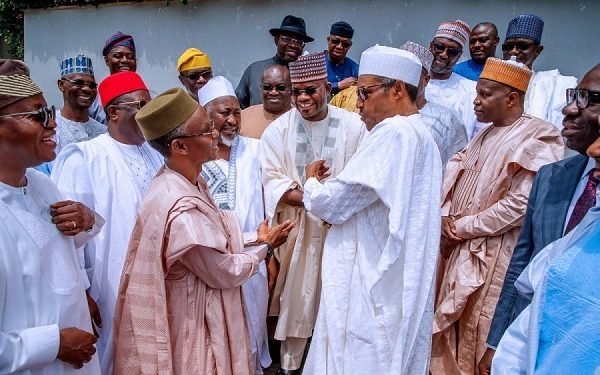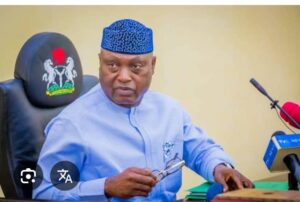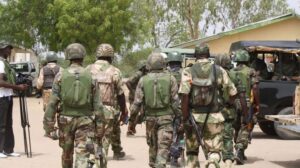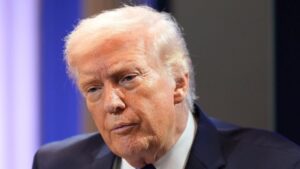
The 36 state governors have resolved to meet with President Muhammadu Buhari “as soon as possible to address security challenges across the country, particularly in the light of the carnage in Borno State”.
The governors took the decision at the 22nd meeting of the Nigeria Governors’ Forum (NGF) held on Wednesday.
They had been briefed by the delegation they sent to commiserate with Governor Babagana Zulum of Borno State on December 1, 2020, over the killing of more than 40 rice farmers in Garin Kwashebe in Jere Local Government Area of the state.
The victims were harvesting rice when the terrorists unexpectedly pounced on them, killing them in gruesome manner.
The terror sect has since claimed responsibility for the massacre, claiming that the farmers once arrested one of its members and handed him over to the authorities.
The NGF, in a communiqué issued in Abuja on Friday, also elected to support the necessary reforms that will result in a police force that works for all.
“As an immediate to medium-term measure, members agreed to pay close attention to the conduct of police officers across the country in order to get them and other internal security operatives fully back to work as they have not been functioning to full capacity since the EndSARS protests with the attendant security exposure to the safety of lives and properties of the ordinary citizens,” they said.
The governors also discussed the Academic Staff Union of Universities (ASUU) industrial action and urged the Federal Government and the union to urgently resolve their differences to allow for immediate reopening of the nation’s tertiary institutions.
They asked both sides to “hasten the implementation of the truce elements in their resolutions so as to allow schools reopen immediately.”
They faulted the practice where the Federal Government is currently collecting stamp duties, insisting that stamp duties “belong primarily to states and the various collection platforms are channels of payment to the states; while aligning with the guidance provided by its lawyers and experts.”
The governors also endorsed the two proposals canvassing infrastructure development by both the Governor Nasir el Rufai Committee and the Central Bank Nigeria (CBN) governor, Godwin Emefiele.
The el-Rufai’s Adhoc Committee Leverage Portion of Accumulated Pension Funds for Investment in Nigeria Sovereign Investment Authority (NSIA) is proposing the creation of a National Infrastructure Investment Fund (NIIF) such that a total sum of N2 trillion at 9% interest can be accessed through the NSIA.
The Governors’ Forum Chairman, Kayode Fayemi of Ekiti State, told the meeting about a similar proposal by the CBN Governor to enable states access N15 trillion naira for national infrastructure funding through INFRACREDIT at a lower interest rate of 5%.
The governors agreed to keep active and operational the State COVID -19 Task Force Teams and Emergency Operation Centers (EOCs) in addition to ensuring the prompt release of funds as outlined in the State Incidence Action Plans (IAP).
They also agreed to keep temporary treatment centres open, ensure ramping up COVID-19 testing across the country and support the planned “COVID-19 Testing Week’ to be launched by the Presidential Task Force (PTF) on COVID-19.
The governors expressed their commitment to achieving the second Eligibility Criteria (EC) requirement of publishing online their approved FY21 Annual State Budget prepared under the National Chart of Accounts by January 31, 2021.
Besides, they restated their commitment to implementing reforms associated with the programme, including the deployment of a Geographic Information System (GIS) technology to support effective land administration and an efficient property tax system and resolved to inaugurate the NGF-NESG Economic Roundtable (NNER) Steering Committee, whose technical committee is to commence the implementation of the strategic plan, which includes but not limited to the national mapping of sub-national endowments, global mapping of sub-national entities for global competitiveness and development of competitiveness toolkits.






